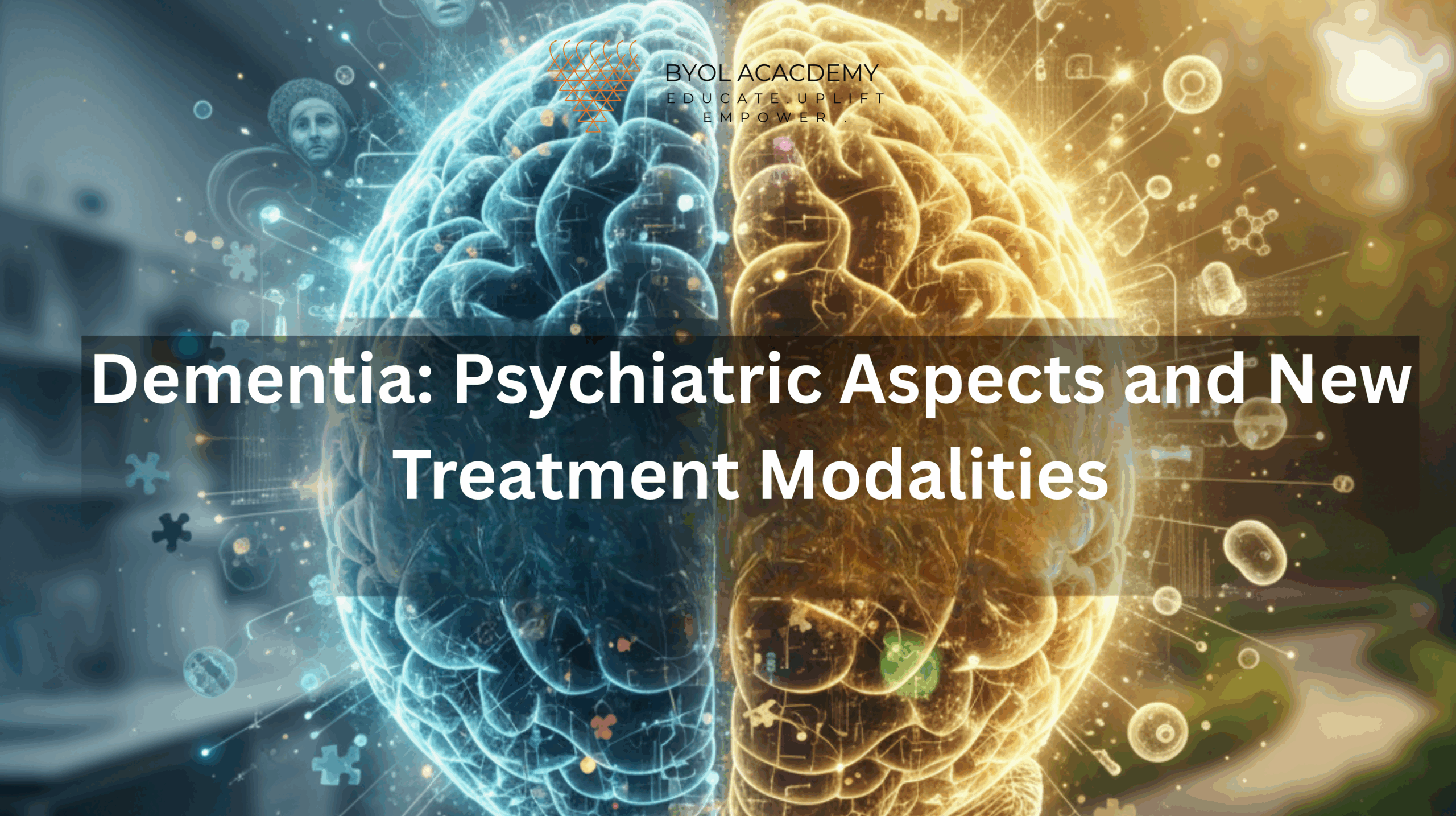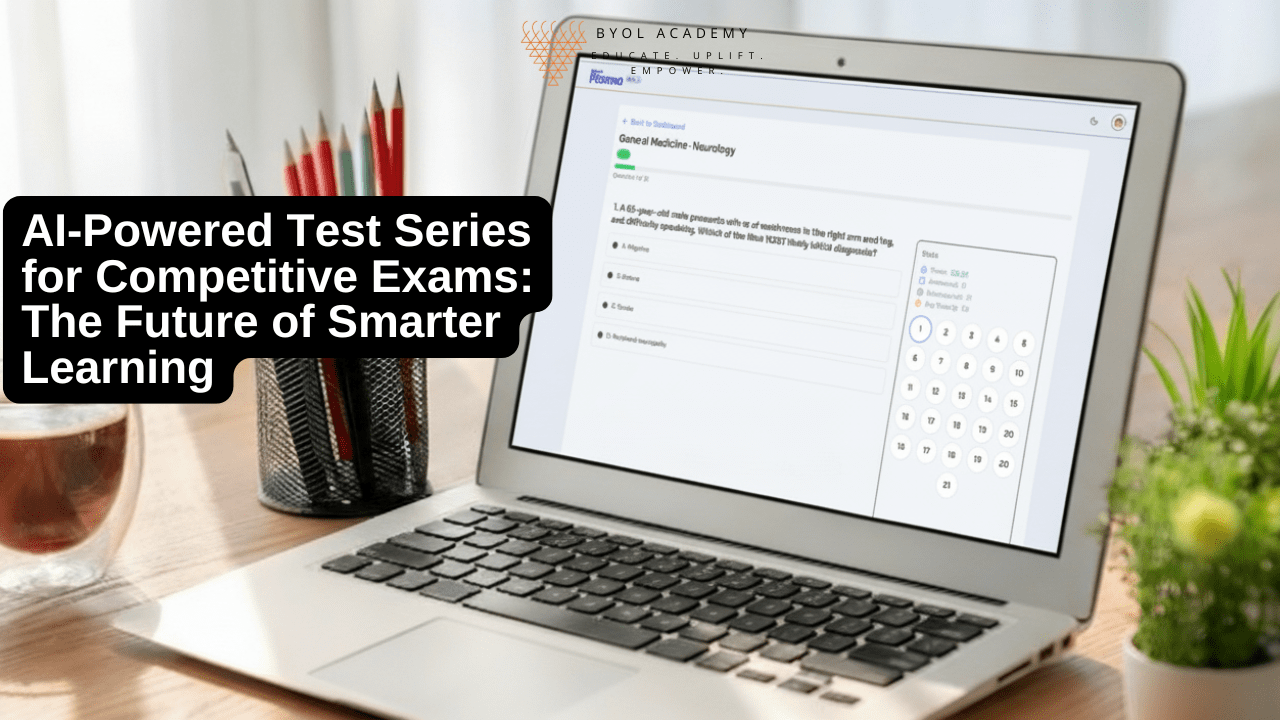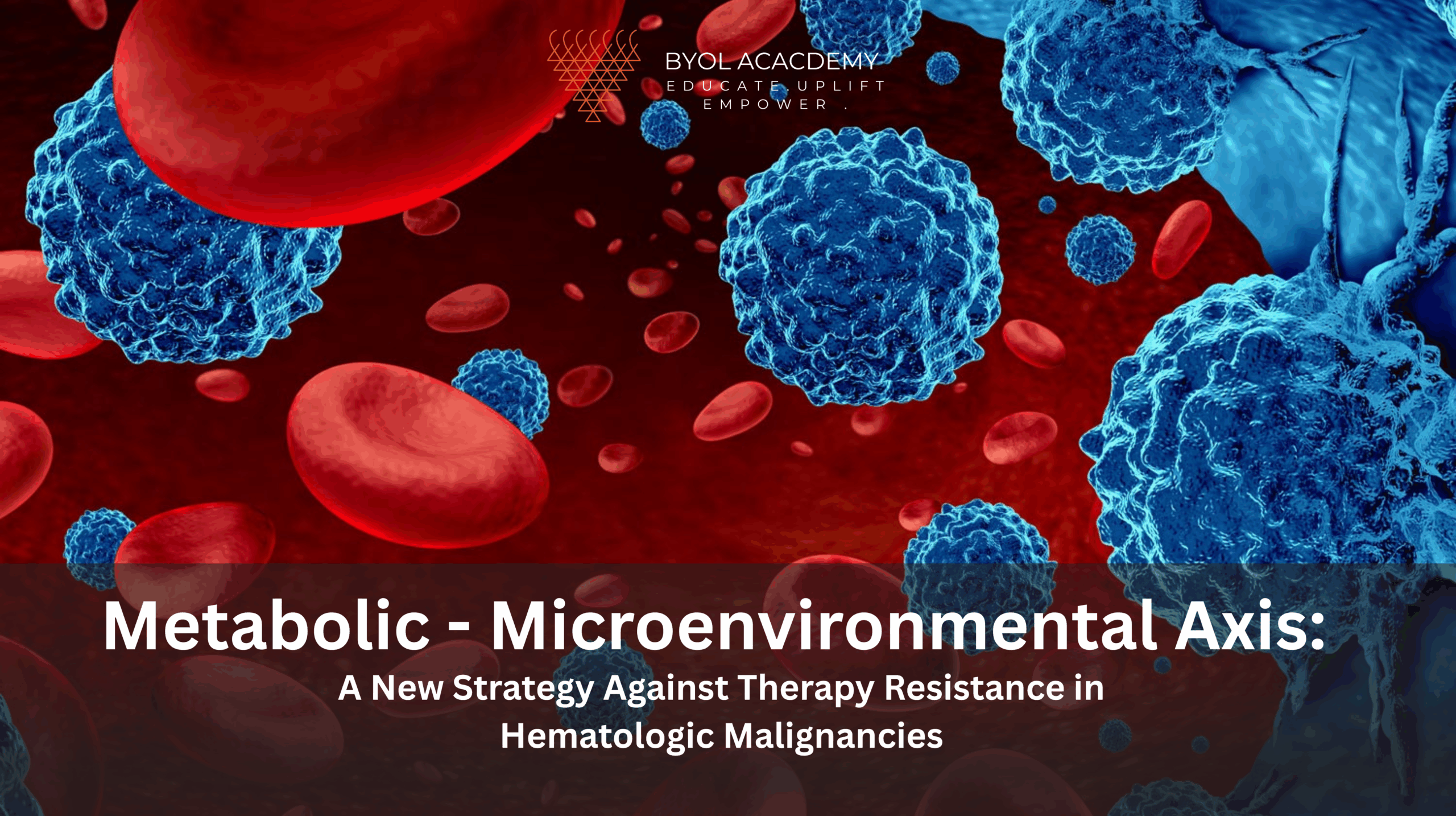Building a Future Where Care Meets Equity The role of a health professional has never been limited to diagnosing illness […]
Dementia: Psychiatric Aspects and New Treatment Modalities

Introduction
Dementia is a progressive neurocognitive disorder characterized by decline in memory, executive function, language, and behavior, significantly impairing daily functioning. It encompasses a spectrum of disorders including Alzheimer’s disease, vascular dementia, frontotemporal dementia, and Lewy body dementia.
With the rise in world aging populations, dementia has become a critical psychiatric and public health concern.
Psychiatric Aspects of dementia
Although dementia is primarily a neurocognitive disorder, psychiatric manifestations are integral to its presentation and management.
These Behavioral and Psychological Symptoms of Dementia (BPSD) occur in nearly 80–90%(data from synopsis) of patients during the course of illness.
1. Affective Symptoms:
Depression and anxiety are common in early stages(mostly lasting for 1 year), followed by cognitive decline. They contribute to poor quality of life and faster progression of cognitive symptoms.
2. Psychotic Features:
Delusions (e.g., of theft, infidelity, misidentification) and hallucinations, particularly visual, are frequent in Alzheimer’s and Lewy body dementia. These increase caregiver stress and hospitalization rates.
3. Behavioral Disturbances:
Agitation, aggression, wandering, disinhibition, and sleep–wake disturbances pose major management challenges. They often reflect underlying neurobiological dysfunctions in serotonin, dopamine, and GABAergic systems.
4. Personality Changes:
Patients may exhibit apathy, social withdrawal, or loss of empathy, especially in frontotemporal dementia, leading to significant caregiver distress.
5. Cognitive–Emotional Interaction:
Frontal lobe dysfunction can impair emotional regulation, leading to inappropriate affect or mood lability—key aspects psychiatrists address during treatment.
Conventional Treatment Options for Dementia
1. Pharmacological Treatments
A. Cognitive Symptom Management
1. Cholinesterase Inhibitors (ChEIs)
These drugs increase acetylcholine levels in the brain , a neurotransmitter crucial for memory and learning.
• Drugs: Donepezil, Rivastigmine, Galantamine
• Use: Mild to moderate Alzheimer’s disease and some benefit in Lewy body and Parkinson’s disease dementia.
• Benefits: Slows cognitive decline, improves attention and daily functioning.
• Side effects: Nausea, diarrhea, bradycardia, insomnia.
2. NMDA Receptor Antagonist
• Drug: Memantine
• Mechanism: Regulates glutamate activity to prevent excitotoxicity and neuronal damage.
• Use: Moderate to severe Alzheimer’s disease, often combined with a ChEI.
• Benefits: Improves cognition, mood, and daily performance.
• Side effects: Dizziness, confusion, constipation.
3. Combination Therapy
• Donepezil + Memantine combination therapy is often used for moderate-to-severe cases when monotherapy isn’t sufficient.
⸻
2. Psychiatric and Behavioral Symptom Management (BPSD)
1. Antidepressants
• SSRIs (e.g., Sertraline, Citalopram, Escitalopram) used for depression, anxiety, and irritability.
• Avoid tricyclics due to anticholinergic effects worsening cognition.
2. Antipsychotics
• Risperidone, Olanzapine, Quetiapine for psychosis, agitation, or aggression.
• Used only when symptoms are severe, as they carry risks of stroke and increased mortality in elderly dementia patients.
3. Anxiolytics / Hypnotics
• Short-term benzodiazepines (Lorazepam, Oxazepam) for acute anxiety or insomnia, used with caution due to fall and confusion risk.
4. Mood Stabilizers
• Valproate, Carbamazepine for disinhibition or aggression (limited evidence).
⸻
3. Non-Pharmacological Treatments
These remain the cornerstone of dementia management alongside medications.
1. Cognitive Stimulation Therapy (CST):
Group-based activities to enhance memory, problem-solving, and communication.
2. Reality Orientation Therapy:
Repeated cues about time, place, and person to reduce confusion.
3. Reminiscence Therapy:
Discussing past events and life experiences to enhance self-esteem and memory.
4. Behavioral Interventions:
Identifying triggers of agitation or aggression and modifying environment or routine.
5. Occupational and Physical Therapy:
Maintains independence and mobility, reduces fall risk.
6. Caregiver Support and Psychoeducation:
Essential for managing behavioral changes and preventing caregiver burnout.
7. Nutritional and Lifestyle Support:
Balanced diet, hydration, regular sleep, and physical exercise.
4. Supportive and Palliative Care
As dementia progresses, emphasis shifts to comfort, dignity, and quality of life:
• Advanced care planning
• Pain management
• Safety supervision
• Management of end-of-life support
New Treatment Modalities
1. Disease-Modifying Therapies:
Recent advancements focus on altering the disease course rather than merely alleviating symptoms.
• Anti-Amyloid Therapies: Aducanumab and Lecanemab (FDA-approved) target amyloid-beta plaques, showing modest cognitive benefit in early Alzheimer’s disease.
• Anti-Tau Therapies: Ongoing trials (e.g., Gosuranemab, Tilavonemab) aim to prevent tau aggregation, another key pathological hallmark.
2. Neuropsychiatric Management:
• Antidepressants: SSRIs (e.g., sertraline, citalopram) for depression and irritability.
• Antipsychotics: Used cautiously for psychosis and aggression (e.g., risperidone, quetiapine) due to stroke and mortality risk.
• Mood Stabilizers: Valproate and carbamazepine for behavioral regulation in select cases.
3. Non-Pharmacological Interventions:
• Cognitive Stimulation Therapy (CST): Enhances memory and social engagement.
• Music, Art, and Reminiscence Therapy: Shown to reduce anxiety and improve mood.
• Caregiver Psychoeducation: Critical for reducing burnout and improving patient outcomes.
• Digital and AI-Based Interventions: Use of virtual reality, brain-training apps, and telepsychiatry for early detection and remote care.
4. Emerging Research:
• Gene Therapy and Stem Cell Research: Aimed at neuronal regeneration and reducing amyloid/tau pathology.
• Neuroprotective Agents: Trials on insulin nasal sprays, anti-inflammatory agents, and mitochondrial stabilizers show promise.
• Deep Brain Stimulation (DBS): Being explored for cognitive enhancement in select dementia types.
Conclusion
Dementia is the intersection of neurology and psychiatry, demanding a biopsychosocial approach. While definitive cure remains elusive, advances in disease-modifying drugs, digital psychiatry, and holistic management are reshaping dementia care. Early recognition of psychiatric symptoms and integration of personalized treatment plans remain key to improving quality of life for both patients and caregivers.


